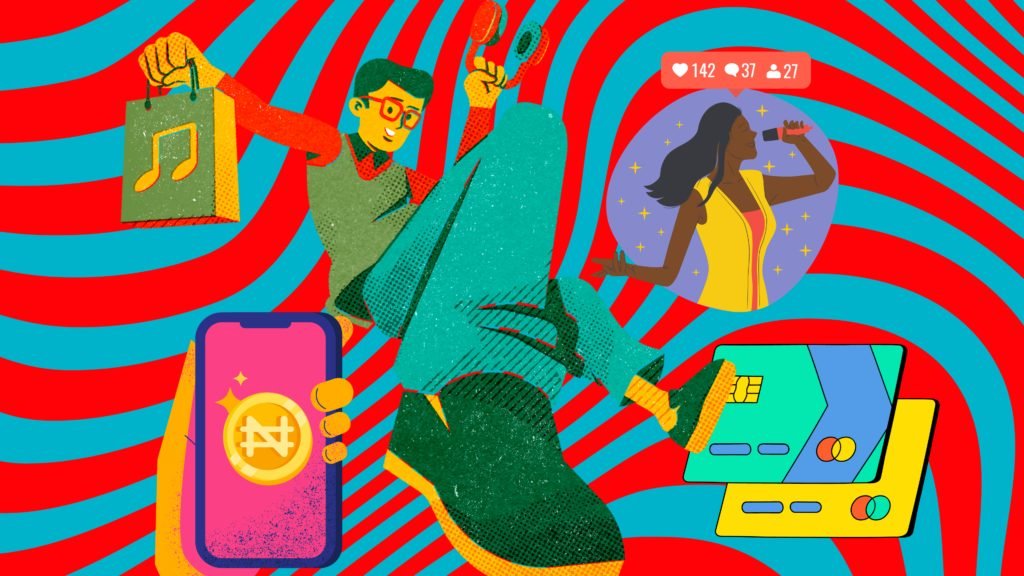
Africa’s creative landscape is undergoing a dynamic transformation, with its creator economy valued at an impressive $3.08 billion in 2025 and projected to skyrocket to $17.84 billion by 2030. Fueled by widespread social media engagement, booming mobile connectivity, and a youthful, innovative population, the continent is carving out a significant space in the global creative market. At the forefront of this revolution is Nigeria’s Nollywood, which continues to captivate audiences worldwide, alongside other vibrant cultural sectors like music, fashion, and digital content creation.
The driving forces behind Africa’s creator economy are thriving due to several key factors. With over 1.4 billion people and a median age of 19, the continent’s youth are leveraging platforms like YouTube, TikTok, and Instagram to produce culturally resonant content that resonates globally. Mobile penetration, with over 700 million smartphone users expected by 2030, has democratized access to digital tools, enabling creators to monetize their work through sponsorships, subscriptions, and e-commerce. Posts on X highlight the growing influence of African creators, with Nigerian influencers and filmmakers leading the charge in redefining global perceptions of African culture.
Nigeria’s Nollywood, the world’s second-largest film industry by output, is a cornerstone of this growth. Generating $590 million annually, Nollywood’s low-budget, high-impact storytelling has earned it a global fanbase, with streaming platforms like Netflix and Amazon Prime investing heavily in African content. Beyond film, Afrobeats artists like Burna Boy and Wizkid are dominating international charts, while fashion designers and visual artists from cities like Lagos, Nairobi, and Johannesburg are gaining recognition at global events.
Economic and Cultural Impact The creator economy is not just a cultural phenomenon—it’s a significant economic driver. Employing millions across film, music, and digital content, the sector is creating jobs and fostering entrepreneurship. Initiatives like Afreximbank’s $1 billion African Film Fund are set to scale production and distribution, while events like the Africa Creative Market (ACM) 2025, themed “Creative Bridge,” are fostering global partnerships and investment opportunities for African creatives.
In Rwanda and Nigeria, programs like Move Afrika, led by Global Citizen’s Ifeoma Chuks-Adizue, are creating over 2,500 jobs through music and cultural festivals, further boosting local economies. However, challenges remain. Weak intellectual property protections, piracy, and inadequate infrastructure pose risks to sustained growth.
For instance, Nollywood loses significant revenue to piracy, and many creators struggle with limited access to funding and global distribution networks. Addressing these hurdles through stronger regulations and investment in digital infrastructure will be critical to unlocking the sector’s full potential. A Global Stage for African Creativity Africa’s creative industries are rewriting the continent’s narrative on the world stage. Cultural capitals like Dakar, Johannesburg, and Lagos are hubs of innovation, with creators leveraging their heritage to craft authentic, globally appealing content.
The Africa CEO Forum notes that visionary leaders in the creative sector are enhancing Africa’s soft power, positioning the continent as a cultural powerhouse. As one X post aptly stated, “Africa’s creators are not just influencers—they’re entrepreneurs, job creators, and cultural ambassadors shaping the future.”With projections pointing to a $17.84 billion creator economy by 2030, Africa is on track to become a global leader in creative innovation.
As Nigeria’s Nollywood and other cultural sectors continue to shine, the continent’s creators are proving that their stories, voices, and talents are a force to be reckoned with. Stay tuned for more updates on Africa’s thriving creative economy and its impact on global culture and commerce!